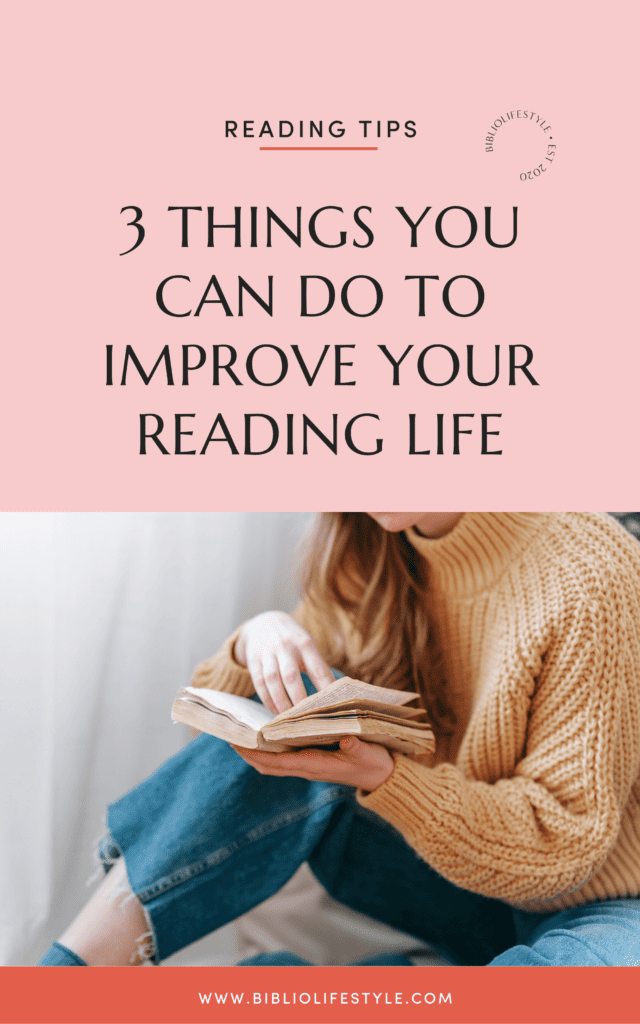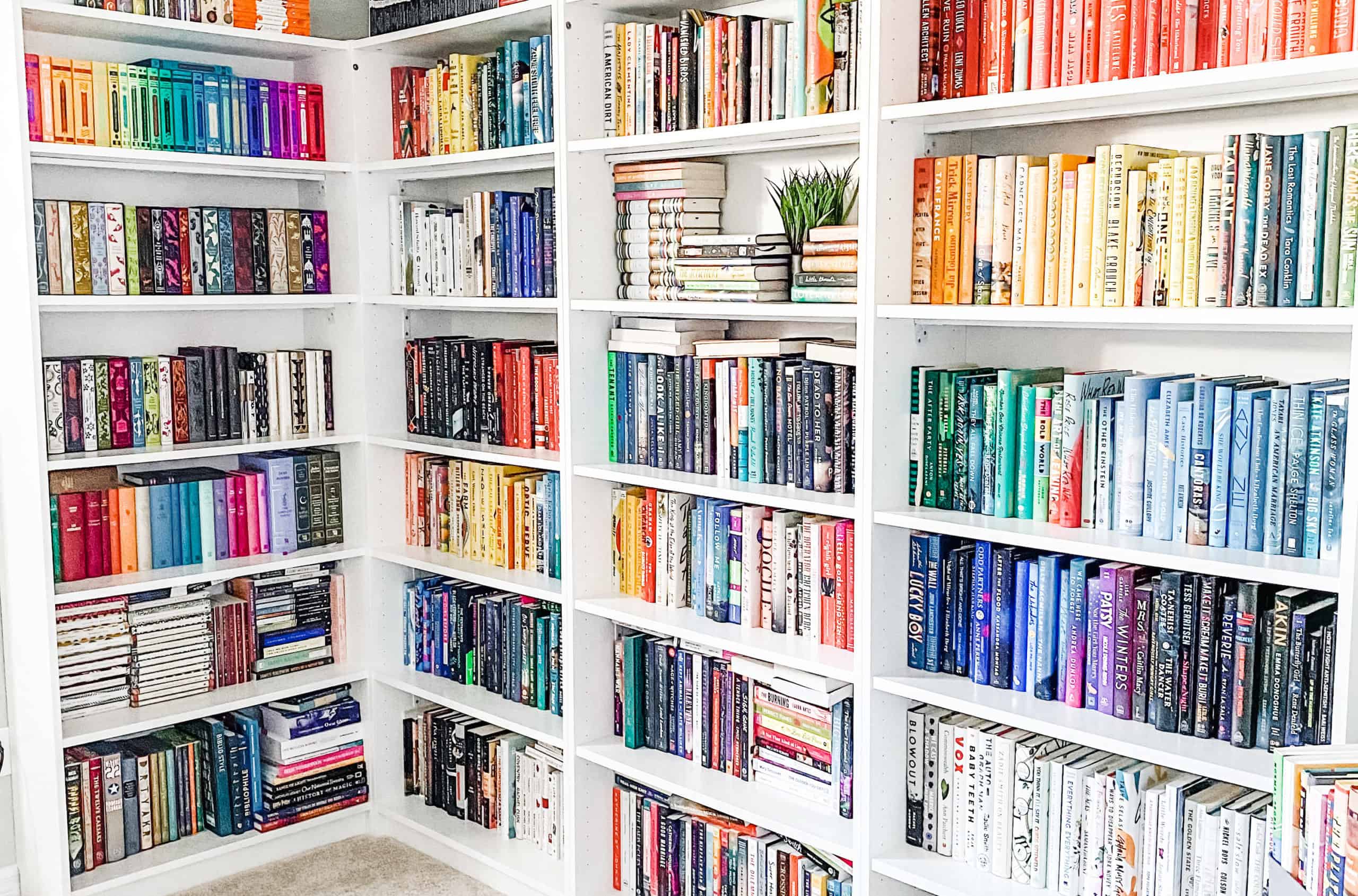Last Updated on January 18, 2024 by BiblioLifestyle

If you’re like most people, you probably don’t read as much as you’d like, or if you are reading, you might not feel happy or fulfilled in your reading life. But, whether it’s because you don’t have enough time or because you find reading difficult or unenjoyable, you can do a few things to improve your reading life. In this article, I’ll share three tips that have helped me and hopefully, they’ll help you too!
3 Things You Can Do To Improve Your Reading Life
We know what you’re thinking; there is no way these three things could improve “your” reading life. Or you probably think there is no “one method works for all” scenario when it comes to reading. But, superlatives aside, I know we’re all in different stages of our relationship with reading. So whether you’re a voracious reader and you read close to one hundred books a year, or you’re struggling to read one book per month for a book club, or you haven’t read in years, and you have this resolution to start reading again – these three things can help to improve your reading life.

1. TRACK THE BOOKS YOU WANT TO READ
There are so many books out there that I know you’ve been eyeing to read one day. Books you see online, on social media, books you’ve been recommended, and eye-catching books you’ve seen at the library or the bookstore.
The habit most readers fall into, myself included, is to jot these titles down in your notes, your journal, or even on a post-it. Then, if you’re online, you might add to the cart and save for later, add to your TBR list on The StoryGraph, Goodreads, Library Thing, or another online reading platform.
This isn’t a bad strategy. I have a TBR list of books I want to read and a list of books I want to buy. The problem I encounter is trying to remember how these books got on the list in the first place. Initially, when I first hear about a new book, I’m so excited I can’t see any possibility that I’ll ever forget about THIS book. But I often forget because sometimes it’s months (even years) later before I’ll get to it.
So, in addition to writing down the title and the author, I now add five extra lines of information: when did I add this title to my list (date), who recommended it (name/ social media account/ website), why do I want to read it or why am I adding it to my list, what is it about (a sentence or two from the summary of the book) and the ISBN or publisher (especially if it a republished work or a collectible edition).
Information to jot down:
- Title and author
- When – the date you add the title to your list
- Who – recommended it to me
- Why – do I want to read it
- What – is it about, summary
- ISBN or publisher – especially if it is a collectible
These bits of information can help you remember why these books are on your list and even get you excited about them all over again. I find it extremely helpful when browsing my journal when I try to decide what to read next or what book I prioritize buying.
2. TRACK THE BOOKS YOU HAVE READ
There are so many different ways to track your reading, and in a separate article, we highlight 5 Ways To Track Your Reading. Bottom line, it doesn’t matter how you do it – it only matters that you do.
It’s one thing to track the books you want to read, but you will discover your reading habits when you track the books you’ve read. Over time you will know if you’re achieving your reading goals. It will also help you to remember the books you have read, you’ll see the kind of reader you are or becoming, it shows you the books you’ve enjoyed, the ones you didn’t care for, and in time, you’ll figure out what kinds of books work precisely for you!
3. STOP READING BOOKS THAT AREN’T WORKING FOR YOU
There are two sides to this debate – how will you truly know if you don’t finish it, and why force yourself to finish something that isn’t working for you just for the sake of finishing? The reality is, deciding whether a book is worth reading is a personal choice. But I have discovered that when readers set aside those books that aren’t working for them, they are much happier in their reading lives and tend to read more books overall.
I have persisted in reading books I’ve considered difficult. I’ve set aside books that aren’t working for me now only to revisit them later, and I’ve thoroughly enjoyed them. But, unfortunately, sometimes I’ve made poor choices. I’ll get sucked into the hype only to discover it was a complete dud (I’m sure we’ve all been there).
Just remember, it’s ok to stop reading books that aren’t working for you because you’ll never get that time back. Instead, you can use that time to take a chance on a new book that may be right for you.
Readers, tracking the books you want to read along with those you’ve read takes seconds of your time, and deciding to abandon a book that isn’t working for you may be just what you need. Reading should be enjoyable, and we hope to help you enjoy your reading life no matter what form it may take!
What have you done to improve your reading life?
Are you planning to try something new? Please share your plans, ideas, tips, and tricks with us in the comments.
Here are some more articles you can read:




+ show Comments
- Hide Comments
add a comment